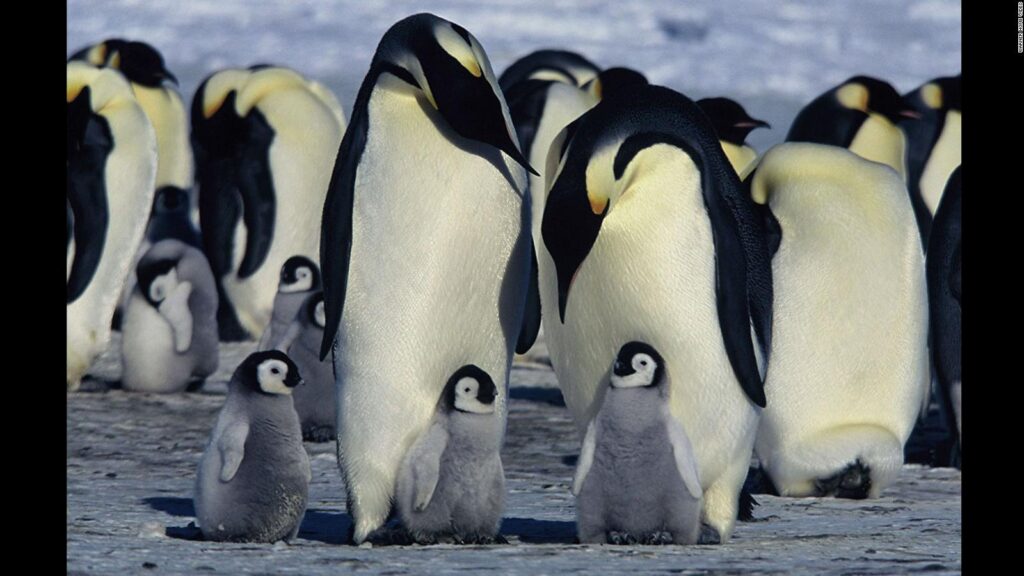
FORNEBU: An NGO-industry collaboration to protect the Antarctic Ocean today announced a big step forward with a year-round permanent closure of a 4500km2 area of ocean around Hope Bay in the northern Antarctic Peninsula.
The move is supported by the Association of Responsible Krill harvesting companies (ARK) and an NGO coalition of Greenpeace, Pew, WWF and Oceanites.
This major closure supported by the largest krill fishing companies will see nearly all krill companies operating in the Antarctic expanding the voluntary restricted zones that went into effect in 2018.
This step would secure the year-round protection of the largest Adélie penguin colony in the region and send a strong statement of intent in support of a marine protected area in the Antarctic Peninsula from industry to the Commission for the Conservation of Antarctic Marine Living Resources (CCAMLR) and the entire Antarctic community.
Studies have shown a strong population decline among the Adélie penguins within the time span they have been monitored. By closing this area, the krill industry reinforces its precautionary approach, upholding important ecosystem values and facilitating a better scientific understanding of penguin performance. This move will also help answer the question of why some colonies are in decline and others are not.
In dialogue with Greenpeace, Pew and WWF in 2018, the world’s leading krill companies voluntarily committed to stop fishing during the penguin breeding season in some of the identified ecologically sensitive areas recommended for protection.
From the 2020/21 season, these krill companies will observe a permanent closure covering 4500km2 of these areas, whilst continuing to support the process to create a vast protected area in the region through advocacy and contribution to relevant scientific research.
“Nature is changing fast in Antarctica, faster than policy and regulation is able to understand and keep up with. When the krill industry moves to an all-year closure ahead of its time, this is a necessary precautionary action that we take because we can. To get things right in Antarctica we need to move outside of our comfort zones and develop “shared ownership” of crucial conservation concepts across industry, Governments and NGOs”, says Pål Skogrand, Director of Antarctic Affairs, Aker BioMarine
Dr Javier Arata, Executive Officer of ARK said: “We are extremely proud that ARK has been able to take such an important step. The area surrounding Hope Bay previously was open for krill harvesting, and it’s now being voluntarily closed by the industry. Despite minimal fishery activity in this area of late, this move still serves as a strong signal to regulators and scientists. We want to show that industry can be a positive force for ecosystem conservation in Antarctica.”
Will McCallum of Greenpeace’s Protect the Oceans campaign, said: “This is a major step towards seeing permanent protection in the Antarctic Peninsula and we are pleased to see the fishing industry listening to the movement of individuals, scientists and politicians across the world calling for ocean protection.”
Phil Trathan, Head of Conservation Biology at British Antarctic Survey (BAS): “This commitment by ARK to create a voluntary no-take fishery zone, ahead of legally binding management measures, shows that the fishing industry understands the need to protect the Antarctic marine ecosystem. With this decision, ARK is demonstrating its commitment to fish responsibly and sustainably.
This shows ARKs support for the designation of Marine Protected Areas in sensitive locations close to where the fishery operates. This is a first step demonstrating that industry can lead and be part of the solution. To the best of my knowledge, this is unprecedented and the first time that a fishing industry anywhere in the world has made such a positive commitment”.
The companies making the commitment represent 85% of the krill fishing industry in the Antarctic and are all members of the Association of Responsible Krill harvesting companies (ARK), including Aker BioMarine, CNFC, Jeong IL Co., Dongwon Ind. Co., PescaChile, Rimfrost, Fujian Zhengguan Fisheries Development Corporation, and Liaoning Pelagic Fisheries corporation.
Aker BioMarine is a biotech innovator and Antarctic krill-harvesting company, dedicated to improving human and planetary health. The company develops krill-based ingredients for nutraceutical, aquaculture, and animal feed applications. The company’s fully transparent value chain stretches from sustainable krill harvesting in pristine Antarctic waters through its Montevideo logistics hub, Houston production plant, and all the way to customers around the world.
Leave a Reply